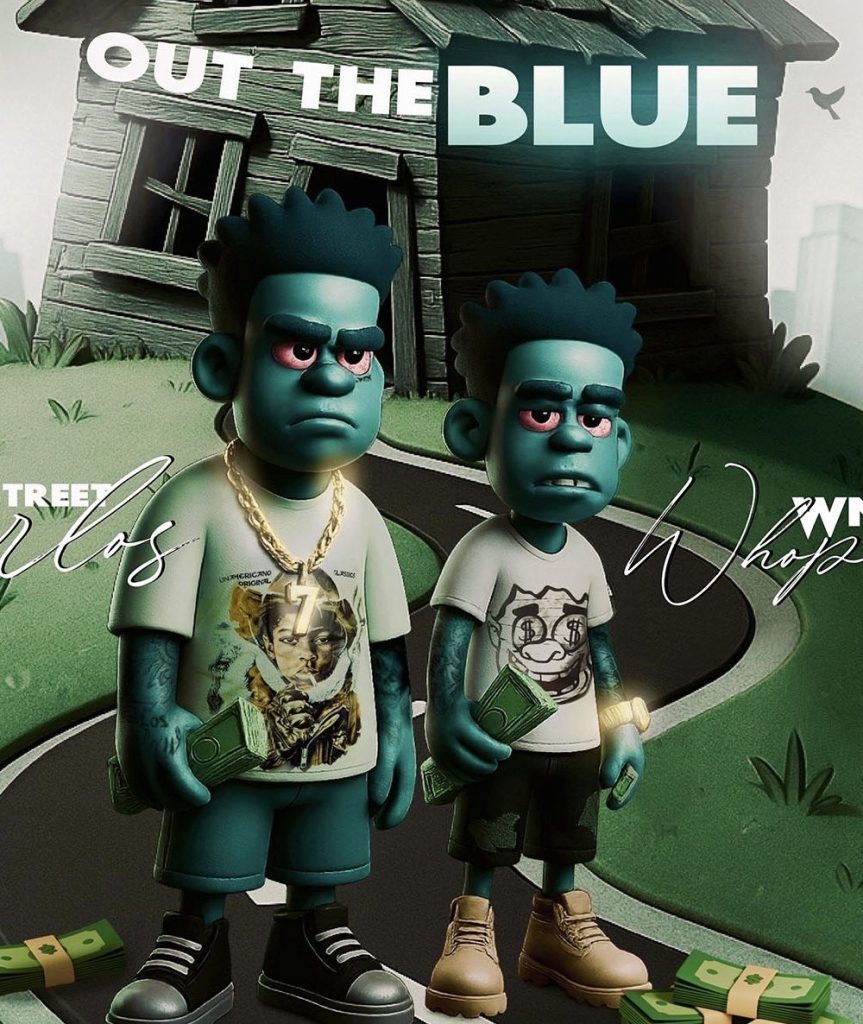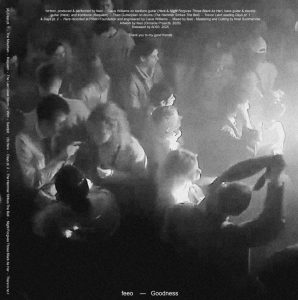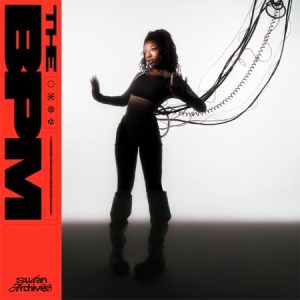GENRE; Rap
LABEL; WNC
REVIEWED; 10 November, 2025
RATING; 8.5
Baton Rouge’s loudest duo crash back into the room on Out the Blue, a 15-track, 38-minute banger that reads equal parts party invitation and neighborhood dispatch. The project landed on major platforms on October 2, 2025 — you can find it on Apple Music and Spotify and it wears its regional DNA proudly: short, hard-hitting songs built for clubs, car trunks, and any late-night street-corner freestyle session.
Musically, the record is a study in contrast: fat, rolling low-end and bounce-ready percussion undercuts verses that flip between trash-talking bravado and sudden, lived-in detail. Carlos plays the loose cannon — unpredictable flows, sudden vocal twists, and off-kilter ad-libs while Bezzy is the calibrating force, spitting sing-song hooks and holding the choruses together. That interplay is the album’s engine: when they lock in, the tracks hit like a stadium chant; when they pull apart, the danger is part of the thrill. Those dynamics are exactly what critics pointed to in early reviews, with the duo earning strong praise for chemistry and joyful intensity.
Standout moments: “Rappin & Trappin” is a textbook example of their approach — club-forward production, call-and-response energy, and a bounce that refuses to let you sit still; the single has been circulating on streaming hubs like Audiomack and YouTube and already functions as a live-set heater. Elsewhere, songs that trade in HBCU drumline energy and streetwise boasts keep the momentum taut across the album’s compact runtime.
Where Out the Blue succeeds is in its unabashedness. It doesn’t pretend to be a confessional masterpiece; it’s a mixtape-mannered celebration of brotherhood, braggadocio, and the tactile pleasures of Southern club rap. Production choices lean into regional twerk and bounce legacies rather than the piano-driven melancholia that’s become common in some Southern circles, giving the record a sunnier, more confrontational swagger. That tonal choice is what critics singled out as a welcome contrast in the current scene.
If there’s a critique, it’s that at 38 minutes the album sometimes feels eager to keep the energy up at the expense of space for reflection, a few tracks blur into one another if you’re listening for narrative arc rather than vibe. But that’s also part of the point: Out the Blue is meant to be loud, immediate, and collective — the kind of record that sounds better in a packed room than as background at a desk. For fans of Baton Rouge’s rawer, dance-ready output, and anyone who likes rap that prioritizes chemistry and momentum, this is a rewarding listen.




